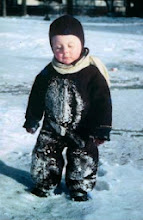
GUILT!
What’s the deal with guilt? When we sin and refuse to come to Christ for forgiveness, our guilt may express itself in a number of different ways.
For instance, before David repented of the terrible sins of adultery and
murder, he experienced physical, emotional, and spiritual anguish.
murder, he experienced physical, emotional, and spiritual anguish.
In Psalm 32:3-4, describing how his guilt affected him, he wrote these words:
“When I kept silent, my bones grew old through my groaning all the day long
(emotional).
“When I kept silent, my bones grew old through my groaning all the day long
(emotional).
"For day and night Your hand was heavy upon me (spiritual); my
vitality was turned into the drought of summer (physical)."
vitality was turned into the drought of summer (physical)."
1. Physical. Unresolved guilt may affect us physically. It usually manifests itself in one of these ways: Listlessness, imagined sickness, real, illness, headaches, stomach, disorders, vague pains, exhaustion.
If we try to run from our guilt, immersing ourselves in work or turning to sin in reckless abandon, we will pay a price. Eventually our bodies will force us to slow down.
2. Emotional. Psychologists and counselors see these emotional effects of guilt: depression, anger, self-pity, feelings of inadequacy, denial of responsibility.
3. Spiritual. Unresolved guilt may have the following spiritual effects on us: a sense of alienation from God, inability to pray, reduced fellowship with believers, no feeling of joy, inability to read the Bible.
4. Relational. A lack of forgiveness will have an impact on our relationships with others in these ways: irritability, blaming others, withdrawal, profuse apologies, inability to relax, self-justification, refusal to accept compliments, outbursts of temper.
David's entire life was affected by his guilt. It touched him physically, emotionally, spiritually, and relationally.
But he cried out to God, found the assurance of forgiveness, and was able to enjoy life again-damaged but hopeful.
Would David have been more honorable not to seek God's forgiveness? Would he have been more respectful of his victim's survivors to refuse any mercy?
Would self-condemnation and suicide have been a nobler course of action? Only if there is no life beyond the grave. Only if the rest of us were not sinners.
Only if a forgiven person has nothing to offer. Only if God doesn't love us enough to long for our restoration. But as the Scriptures show, God loves sinners.


